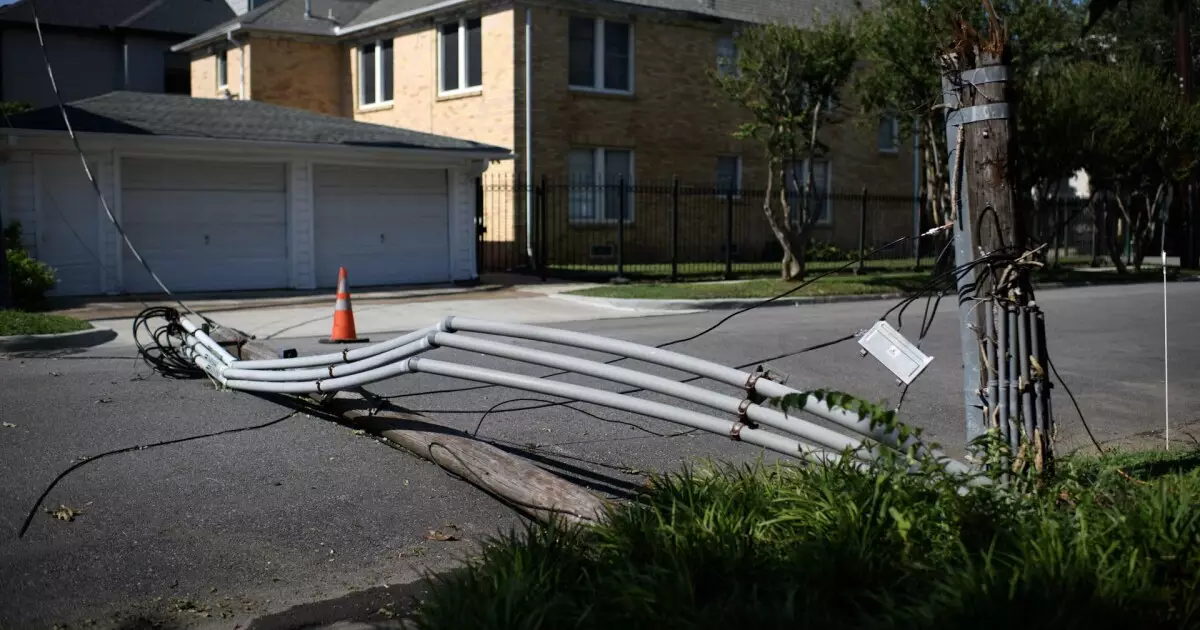The City of Houston, one of the largest metropolises in the United States, is facing significant fiscal challenges that have become particularly acute due to a series of natural disasters. The need for immediate financial intervention became evident when Texas officials recently allocated state funds to assist Houston with debris clean-up following two severe storms. While this funding is a temporary reprieve, it highlights the underlying issues that continue to jeopardize the city’s financial health. Mayor John Whitmire is at the forefront of efforts to address these fiscal concerns, indicating that collaboration with state and local authorities will be key to finding long-term solutions.
The Impact of Severe Weather Events
Houston’s difficulties stem not only from its vulnerability to natural disasters but also from an already existing structural budget gap—one that has been exacerbated by the increased frequency and intensity of storms. The aftermath of a derecho windstorm in May and Hurricane Beryl in July has left the city with an estimated $210.6 million in storm-related costs. While Federal Emergency Management Agency (FEMA) funds are expected to cover a significant portion—approximately 75%—of these expenses, Houston must still grapple with close to $40 million that it needs to come up with from its general fund, further straining its financial resources.
This ongoing cycle of disaster and fiscal response creates a precarious situation for the city, as it must implement immediate budget adjustments while simultaneously planning for future storms. The financial burdens associated with such disasters not only affect the city’s current budget but also pose risks to its long-term economic viability.
In light of the fiscal challenges, Mayor Whitmire’s administration has been working diligently to explore solutions that could alleviate the strain on the city’s budget. Recently, the Houston City Council considered a proposal to increase the maintenance and operations property tax rate. However, the announcement that state funds would be allocated to assist with the storm cleanup effectively halted these discussions. This pause is strategic, allowing the city to reassess its budgetary priorities before making any drastic decision such as raising taxes, which could have long-term political and economic ramifications.
Council Member Sallie Alcorn, who emphasized the need for both cost-cutting measures and an exploration of revenue sources, recognizes that the city may ultimately require support from its taxpayers in the future. This blend of fiscal prudence and planning leads to a complicated dialogue about how best to proceed during a time of uncertainty.
Houston’s budgetary woes are not merely the result of recent storms; they are compounded by other pressing financial commitments. The city has recently undertaken significant expenditures, such as the issuance of $612 million in bonds to cover prior firefighter overtime pay. This decision, while necessary to comply with legal obligations, underscores the challenge of balancing operational costs and emergency responses while maintaining a manageable budget.
Furthermore, Houston’s budgetary concerns are not isolated. S&P Global Ratings has acknowledged the potential for emerging budget gaps as cities exhaust their federal emergency funds, a situation likely to be faced by many municipalities across Texas and beyond. This evolving fiscal landscape requires city leaders to balance immediate needs with long-term strategic planning.
Other cities in Texas are experiencing similar challenges. Dallas, for example, has also approved a substantial budget that includes plans to ramp up contributions to its Police and Fire Pension System. The interconnectedness of these financial decisions speaks to the broader challenges municipalities face in ensuring fiscal sustainability. Similar reports emerge from Austin regarding projected deficits that could grow significantly over the next several years. Such systemic financial pressures indicate that these issues are not unique to Houston but are reflective of statewide economic vulnerabilities.
As Houston navigates through this tumultuous financial landscape, it will need to adopt a multifaceted approach to its budget. Collaboration with state officials, careful management of resources, and proactive policy-making will play a crucial role in mitigating fiscal threats. While immediate solutions such as state funding may provide temporary relief, a long-term strategy that addresses structural budget issues is essential to secure Houston’s economic future. The challenge ahead remains significant, as the city must confront both the realities of climate-related crises and the financial management intricacies that come with it. The coming months will be pivotal as Houston seeks to stabilize its financial footing amidst uncertain circumstances.

